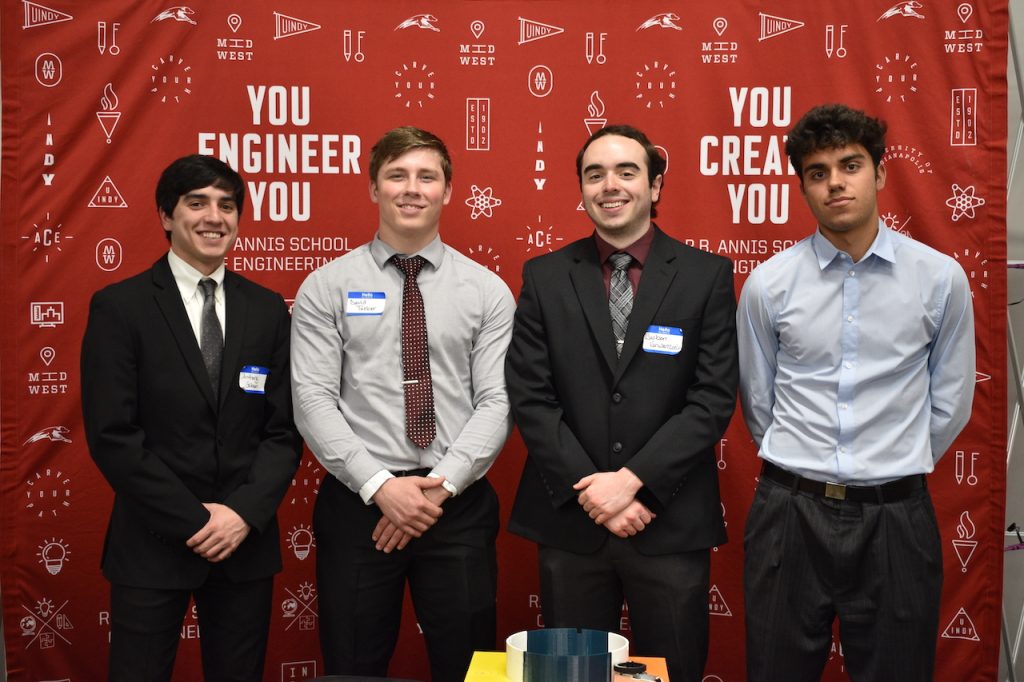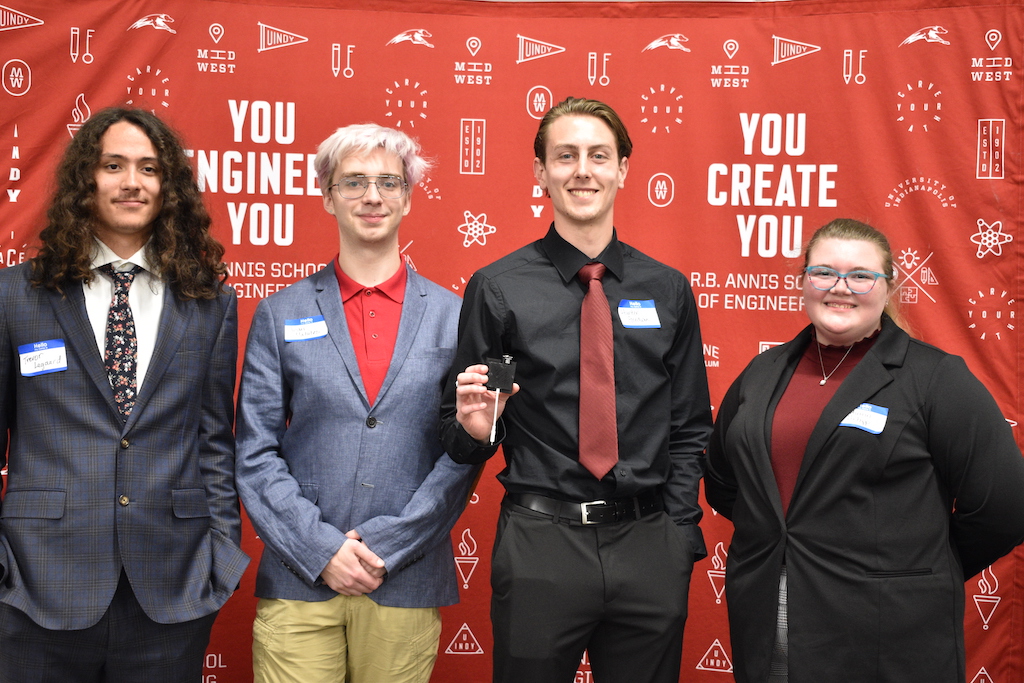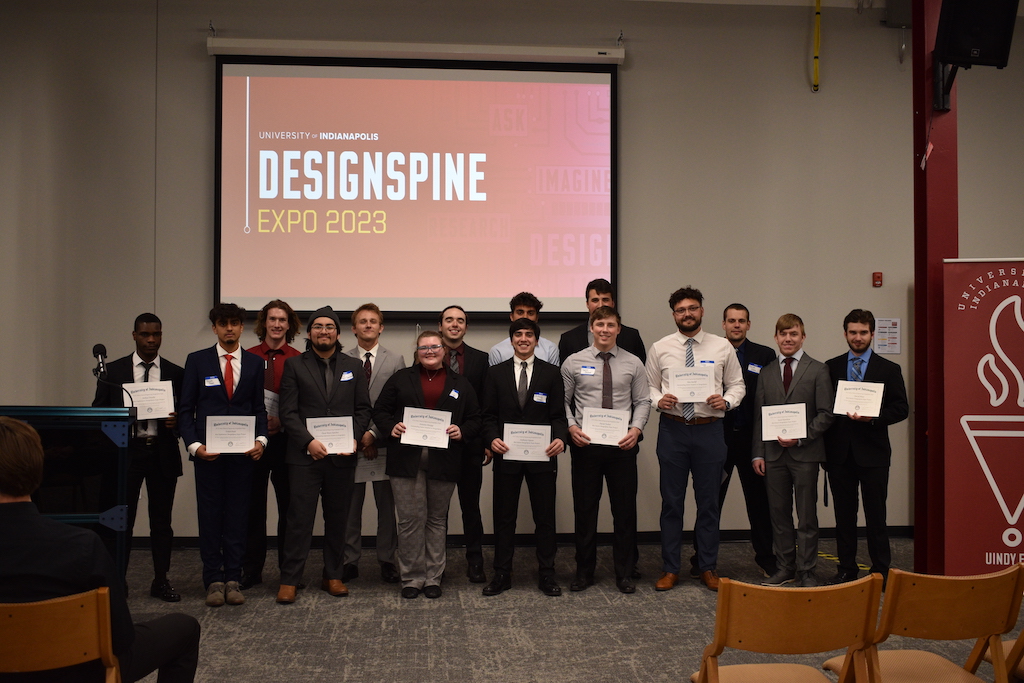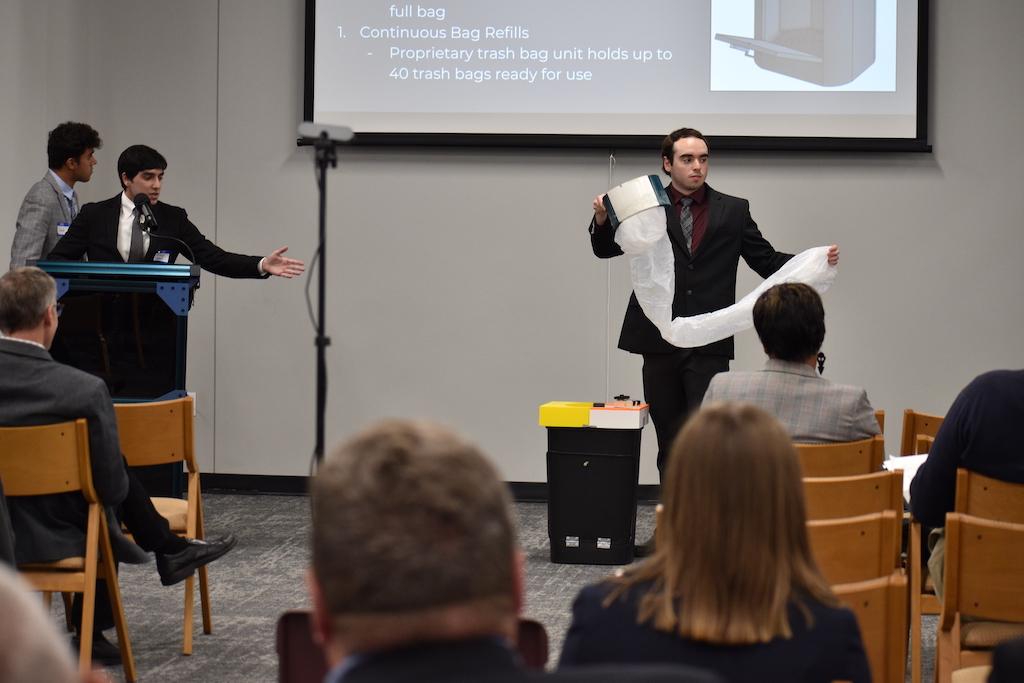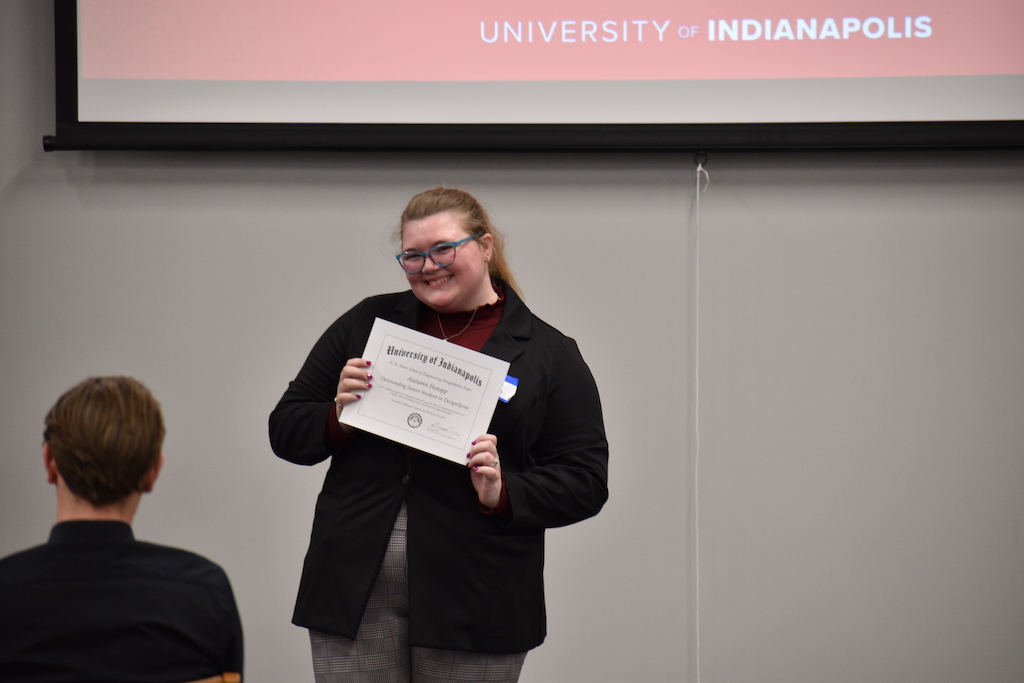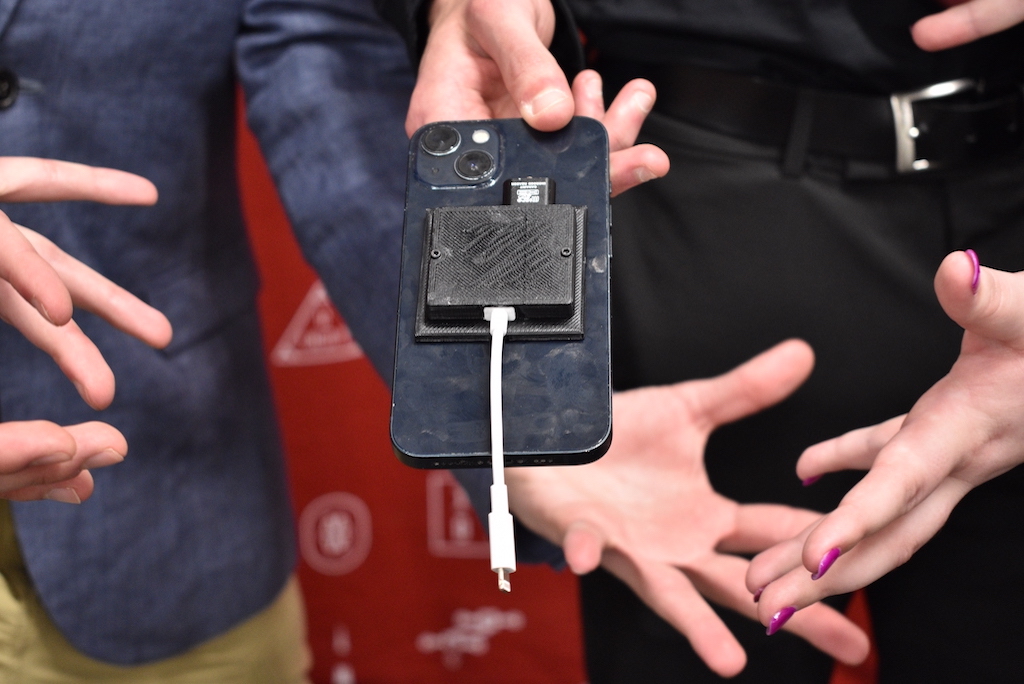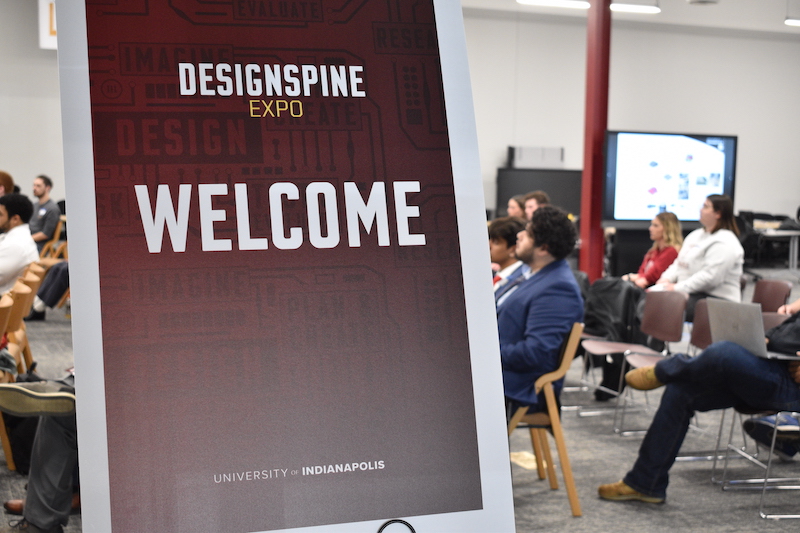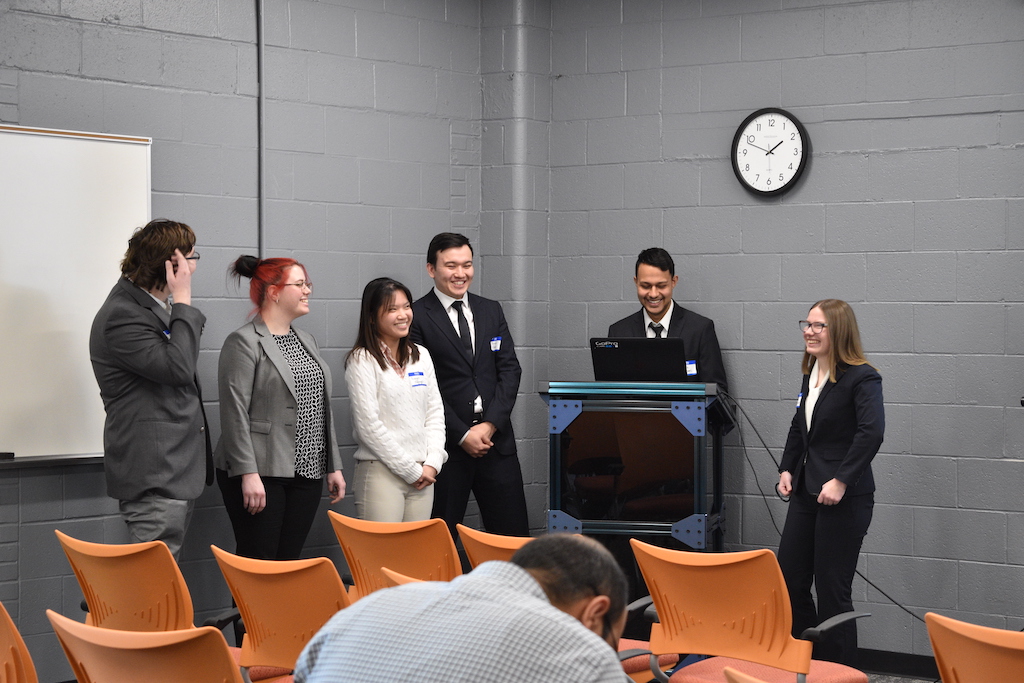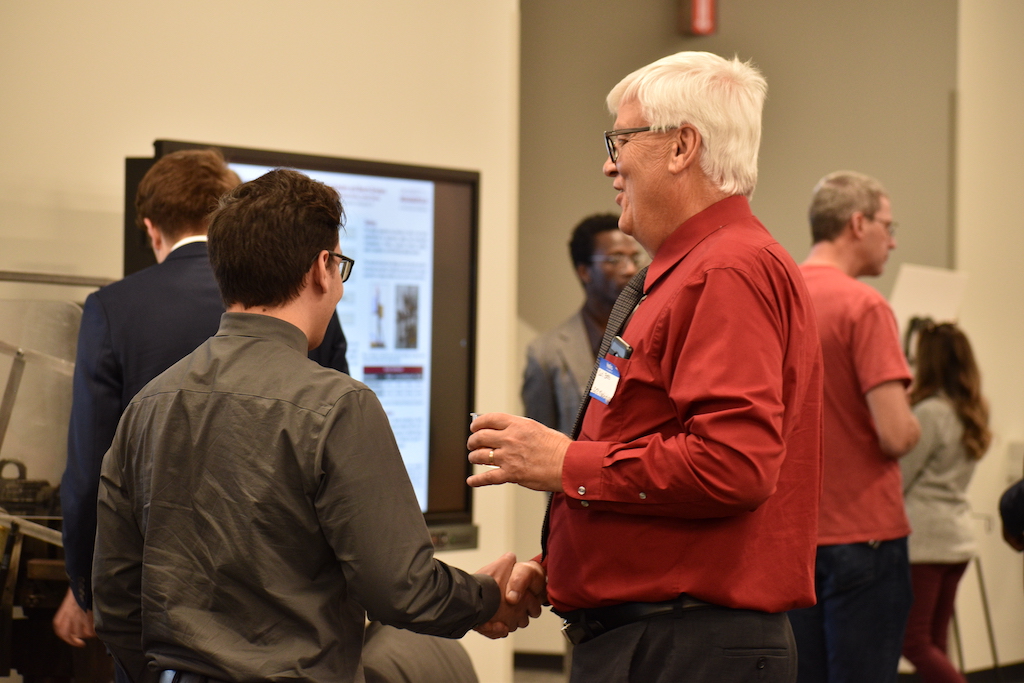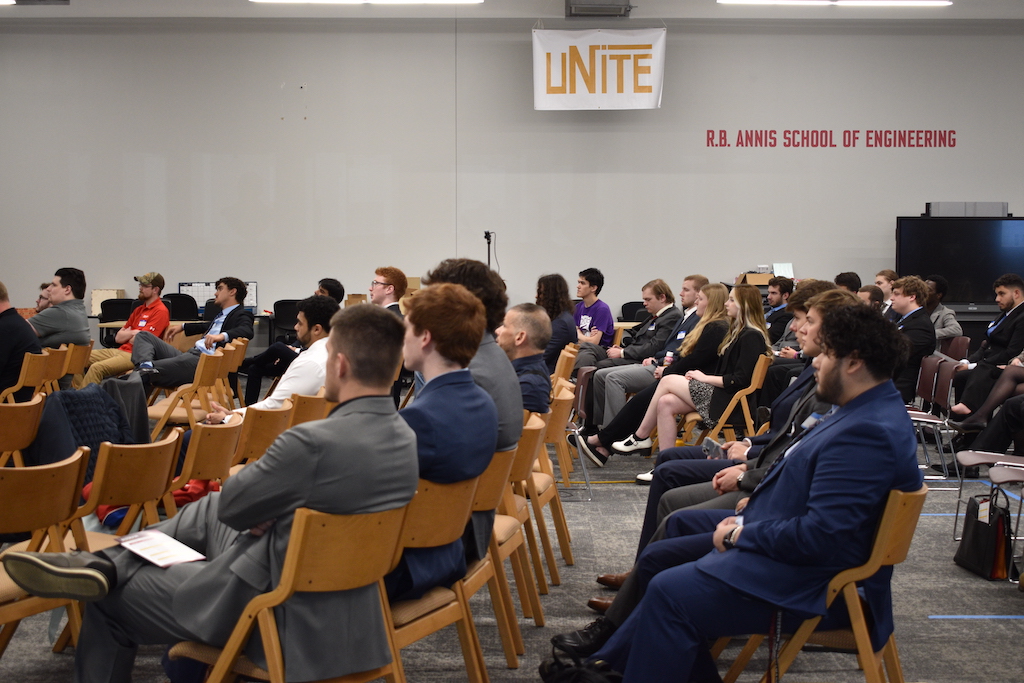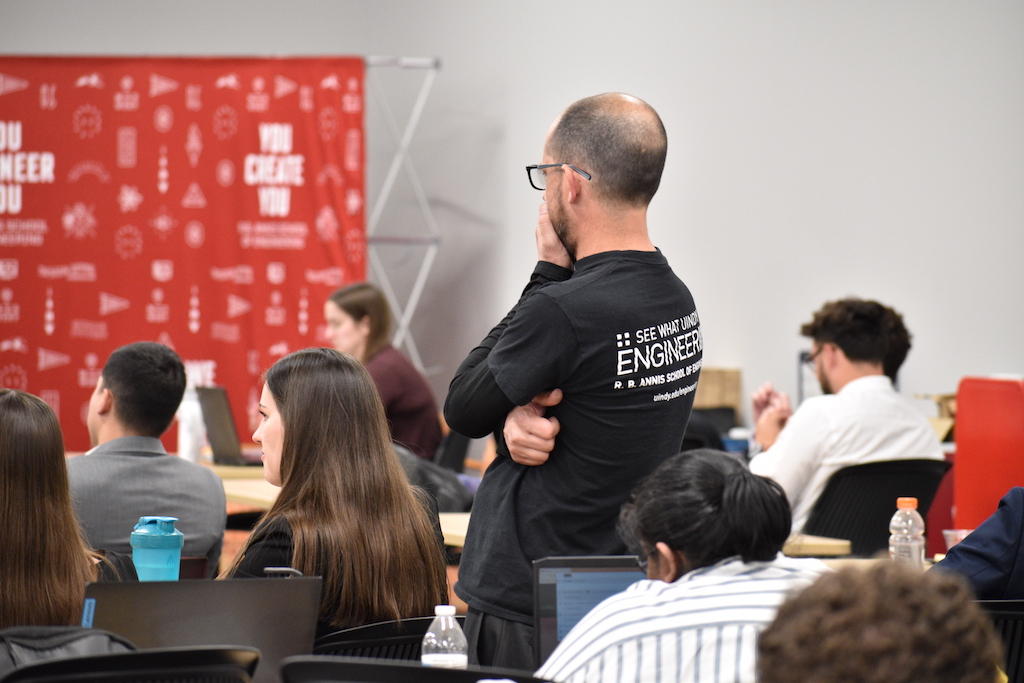Inaugural DesignSpine Expo Brings Out the Best in UIndy Students
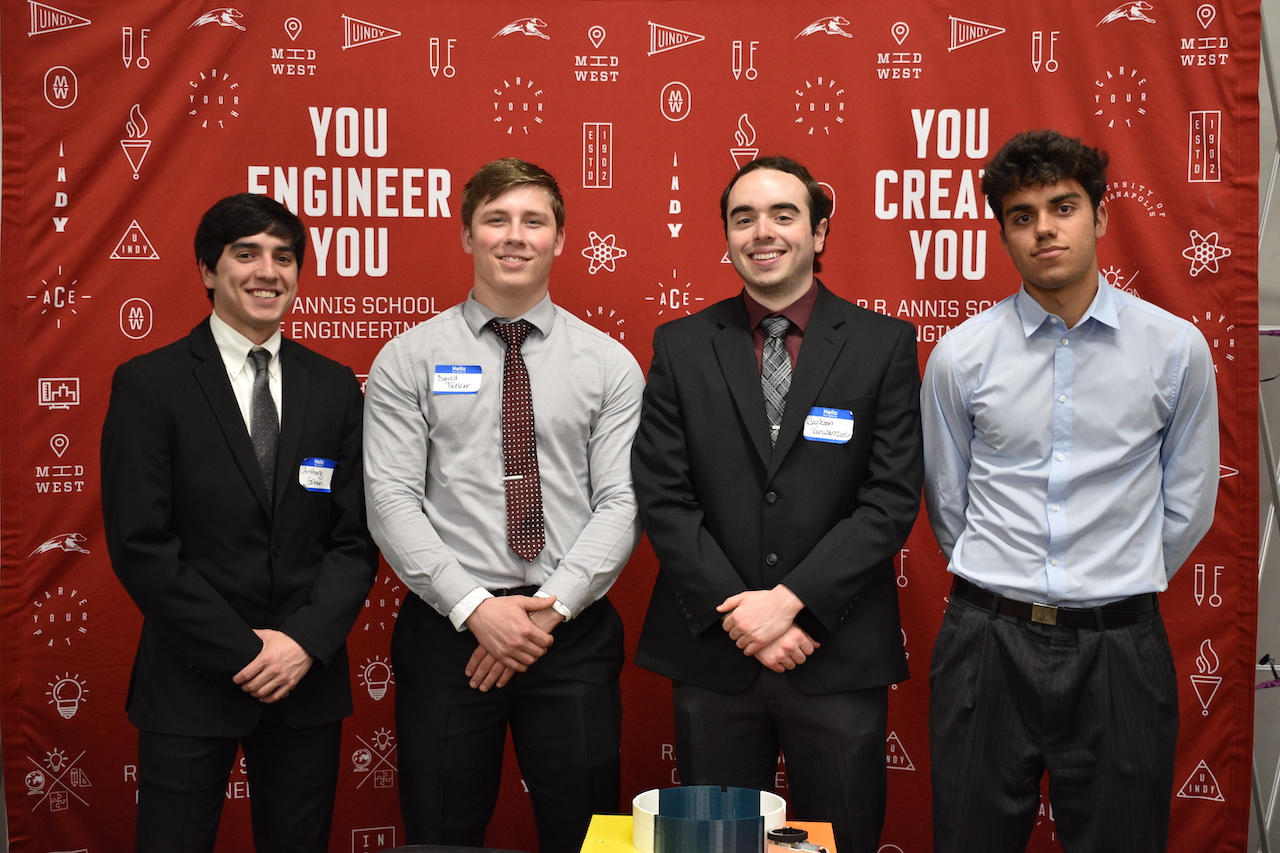
The inaugural DesignSpine Expo, formerly known as the Business Pitch Competition, was held on Tuesday, April 18 at the R.B. Annis School of Engineering. Students from the engineering and business disciplines were able to showcase their inventions and research to guests.
Broken into three different sessions, the DesignSpine Expo gave students the opportunity to work closely with local businesses to improve processes, find issues and create solutions, and to increase efficiency overall. While working with businesses, students had to keep in mind budget, complete product testing, and be aware of Occupational Safety and Health Administration (OSHA) regulations.
One group, sponsored by Eric Fisse of Milwaukee Tool, created the Box Opener—a way for employees to easily break down boxes and cut down on unnecessary steps, while also creating a layer of safety. When designing their product, students kept in mind the way their invention would be used, and they used this to create safety measures that would not be present otherwise.
Session 3 of the day was the Entrepreneurial Team Project Business Pitch Competition, where two teams created inventions and competed Shark Tank-style to pitch their concept and business idea to the audience. Team One created the Waste Wizard, a trash can that automates several steps that normally make taking out the trash such a hassle. Instead of having to remove the filled bag from the top of the trash can, tie off the bag, and replace it with a new bag, Team One’s invention does all of that for you. They created a trash can that opens from the back for easy access, and created a shutter-like solution that will tie off the used bag—a concept which they plan to patent. After the used bag is removed, the Waste Wizard will unravel a new trash bag.
Team Two created The Vault—an iPhone attachment that solves the problem of storage common among iPhones. Their device attaches to the phone like a charging cable would, and then attaches to the back of the phone either with an adhesive or the MagSafe strip that newer iPhones have. Their attachment allows you to store photos and other media when your phone runs out of storage, much like a USB port for a computer. Team One, with the Waste Wizard, was the winner.
Dr. Megan Hammond, Assistant Professor at the University’s R.B. Annis School of Engineering and showrunner of this year’s DesignSpine Expo, said, “I am thrilled with how the day turned out. The Expo started as an idea to showcase the work and dedication that our students, faculty, and staff have put toward these amazing projects over the academic year. We wanted it to be the culmination of DesignSpine and saw the opportunity to invite our campus community, family and friends, and local industry partners. I hope this event and future Expos will continue to showcase what the School of Engineering and our students are capable of. It was great to see all of the students (Sophomores, Juniors, and Seniors) together. The event also allowed students to support each other and see what other teams have been working on all year.”
Dr. Najmus Saqib, another Assistant Professor at the University’s R.B. Annis School of Engineering, said, “It was a testament to our unique hands-on project-based curriculum. One of the things that stood out to me was when a community partner told us that they wished they had more time to see all the student presentations because the work being showcased was so relevant and impactful.”
About DesignSpine
All of the University of Indianapolis’s areas of study are designed within a unique curriculum framework, DesignSpine, which gives students a multidisciplinary, project-based, collaborative learning experience. DesignSpine equips students with not only the necessary technical engineering skills, but also the desired professional skills that make them highly desirable job candidates in many industries. All of the programs at the R. B. Annis School of Engineering focus on hands-on, real-world problem solving. The DesignSpine curriculum empowers interdisciplinary student teams to work on projects for authentic customers in and outside of the University of Indianapolis. “Our student teams engage with industry partners to work on designs beyond typical labs,” said Dr. Reid. “Student teams also explore entrepreneurship, examining intellectual property and the business side of product design and development.”
